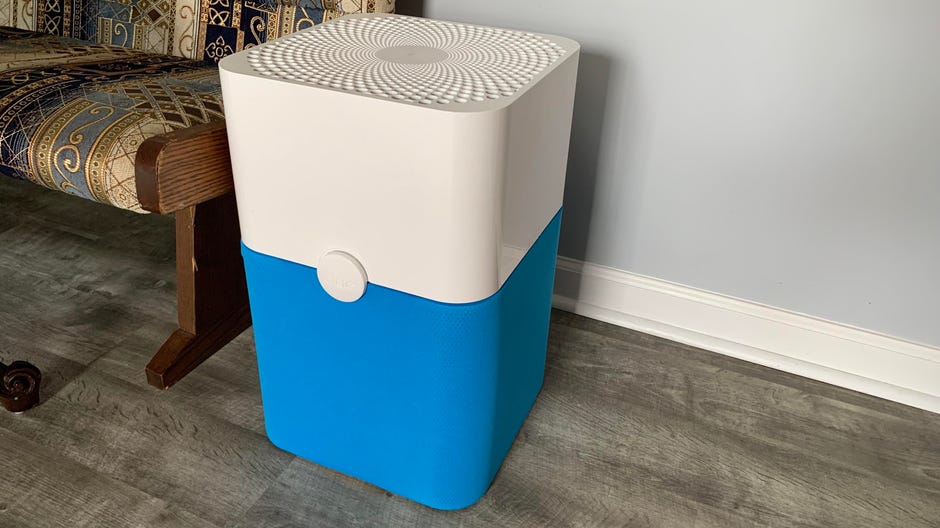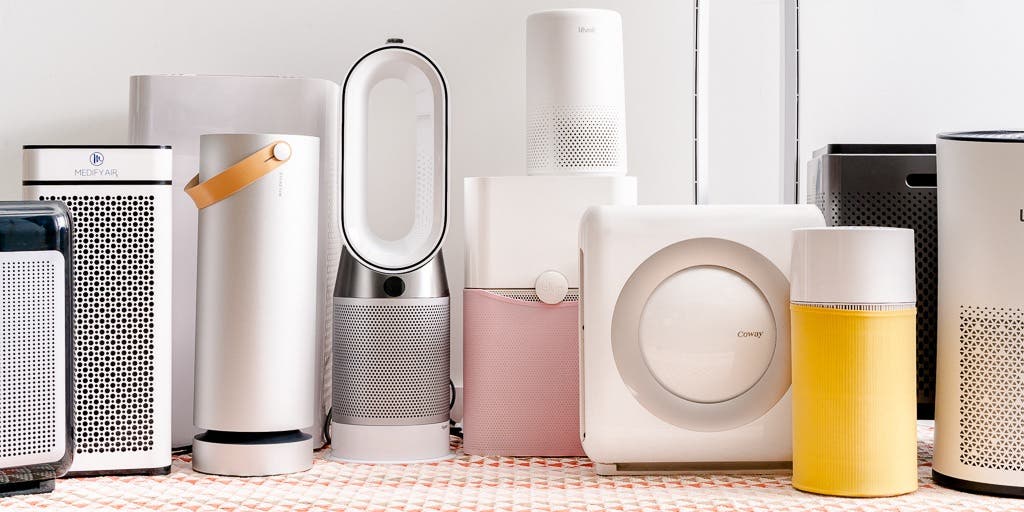If you’re working from home these days, you might be wondering what the best air purifier for your home office is. After all, you want to make sure that your workspace is as healthy and productive as possible.
There are a few things to consider when choosing an air purifier for your home office.
First, think about the size of the room. If it’s a small space, you won’t need a huge air purifier. But if it’s a larger room, you’ll want an air purifier that can cover more square footage.
Second, consider the type of filter you need. Some air purifiers come with HEPA filters, which are great for trapping dust and allergens. Others have activated carbon filters, which are good for absorbing odors and VOCs (volatile organic compounds).
Finally, think about how often you’ll be using the air purifier. If it’s just during work hours, then you don’t need a super powerful one. But if you plan on using it all day long, or even overnight, then get an air purifier that can handle that kind of usage.
As the COVID-19 pandemic continues, many of us are working from home. If you’re like me, your home office is now your new normal. And just as you would want the best for your traditional office space, you should also create a healthy and comfortable environment in your home office.
One way to do this is by investing in a quality air purifier.
There are a lot of air purifiers on the market, so it can be tough to know which one to choose. But luckily, I’ve done some research and found the best air purifiers for your home office.
The first option is the Blueair Classic 605 Air Purifier. This powerful device can cleanse an entire room and has been rated as one of the best air purifiers by Consumer Reports. It’s also Energy Star certified, so it won’t run up your energy bill.
If you’re looking for something a bit more affordable, try the Honeywell HPA300 Air Purifier. This unit is great for medium-sized rooms and can remove up to 99% of airborne particles from the air. Plus, it has a filter life indicator so you’ll always know when it’s time to replace the filter.
Finally, if you want an air purifier that doubles as a humidifier, check out the LEVOIT LV600HH Air Purifier Humidifier Combo Unit. This unit not only cleanses the air but also adds moisture back into dry indoor spaces (which is great during winter). It’s also equipped with filters that capture pet dander and other allergens, making it perfect for homes with pets or allergies.

Credit: www.cnet.com
1
How to start a business in the United States
There are many ways to start a business, but there are a few key things you need to do in order to get your business off the ground.
1. Choose your business structure.
Will your business be a sole proprietorship, partnership, limited liability company (LLC), or corporation? Each has its own pros and cons, so you’ll need to decide which is right for you.
2. Register your business with the government.
You’ll need to obtain a federal Employer Identification Number (EIN) and register your business with your state’s Secretary of State office.
3. Get a Business License. Depending on the type of business you’re running and where it’s located, you may need to obtain one or more licenses or permits in order to operate legally.
4. Open a Business Bank Account. This will help you keep your personal and business finances separate, making it easier come tax time (and helping you avoid any personal liability if something goes wrong with the business).
5 .
Develop Your Business Plan .
What are the Best Air Purifiers for Your Home Office
The air in your home office is likely more polluted than you think. Dust, mold spores, pet dander, and other airborne contaminants can trigger allergies and make it difficult to breathe. An air purifier can help remove these pollutants and improve the quality of the air in your office.
When shopping for an air purifier for your home office, look for a unit that is certified by the Association of Home Appliance Manufacturers (AHAM). This certification means that the purifier has been tested and proven to effectively remove airborne particles from the air.
Also, choose an air purifier with multiple filtration stages.
A good option is a HEPA (high-efficiency particulate air) filter, which can trap 99.97% of airborne particles as small as 0.3 microns in size. For even better results, look for a unit that also includes activated carbon filters to absorb odors and chemical vapors.
Finally, consider the size of the room when choosing an air purifier.
If your office is less than 200 square feet, you can get away with a smaller unit that doesn’t have as much power. However, if your office is larger or if you have multiple rooms that you want to connect to the purifier, opt for a bigger model with higher CADR ratings (clean Air Delivery Rate).
How Do Air Purifiers Work
An air purifier or air cleaner is a device which removes contaminants from the air in a room. These devices are commonly marketed as being beneficial to allergy sufferers and asthmatics, and at reducing or eliminating second-hand tobacco smoke. Air purifiers are also used in industry to remove impurities such as dust, fumes, vapors, or odor.
There are many different types of air purifiers on the market today that use a variety of technologies to clean the air.
The most common type of technology used in home air purifiers is called mechanical filtration. This type of technology works by drawing the contaminated air through a series of filters where the impurities are physically trapped on the filter material.
The filtered air is then discharged back into the room. Some mechanical filters can be washed and reused while others need to be replaced when they become full of trapped impurities. The advantage of mechanical filtration is that it can remove a wide range of contaminants including dust, pollen, pet dander, mold spores, and bacteria.
Another common type of technology used in home air purifiers is called activated carbon adsorption. This type of technology uses charcoal filters to remove contaminants from the air. The charcoal filters are made up of millions of tiny pores that attract and trap contaminants on their surface.
As contaminated air passes through the filter, the pollutants are adsorbed onto the surface of the charcoal pores where they remain until removed when you clean or replace your filter. Activated carbon adsorption is very effective at removing VOCs (volatile organic compounds), odors, and smoke particles from the indoor environment.
Ionization is another type of technology that can be found in some home air purifiers.
Ionization works by charging particles in the indoor environment so that they become attracted to nearby surfaces such as walls or floors instead floating freely in theair where they can be breathed in . Once these charged particles have been removed from suspension intheair , they can no longer contaminate breathing surfaces or enter your lungs if you were to inhale them..
This typeof technologyis often usedin combinationwith othertypes offiltrationto providea more complete solution for cleaningthe indoor environment..
UVGI (ultraviolet germicidal irradiation) systems use shortwave ultraviolet light rays to kill microorganisms such as viruses, bacteria, mold spores, and fungi present in your indoor environment .
What are the Benefits of Using an Air Purifier in Your Home Office
An air purifier is a device that removes contaminants from the air in your home. These devices are designed to improve indoor air quality by trapping or absorbing airborne particles, such as dust, pollen, mold spores, and pet dander. Air purifiers can also remove smoke, chemicals, and other pollutants from the air.
There are many benefits of using an air purifier in your home office. Some of these benefits include:
1. Improved Air Quality: By removing contaminants from the air in your home office, an air purifier can improve the overall quality of the air you breathe.
This can be especially beneficial if you suffer from allergies or asthma.
2. Reduced Health Risks: By improving the quality of the air you breathe, an air purifier can also reduce your risk of developing health problems related to exposure to airborne contaminants.
3. Enhanced comfort: In addition to improving your health, using an air purifier can also make your home office more comfortable by reducing airborne pollutants that can cause irritation or odors.
4. Greater Productivity: The improved indoor air quality that comes with using an air purifier can also lead to increased productivity levels when working in your home office. This is because you’ll be able to focus better when breathing cleaner air.
Top 5 – Best Air Purifiers (2022)
Conclusion
If you work from home, having a good air purifier is essential to maintaining a healthy and productive environment. There are many different types of air purifiers on the market, so finding the right one for your needs can be daunting. To help narrow down your search, we’ve compiled a list of the best air purifiers for your home office.
The first thing to consider when choosing an air purifier is the size of your room. If you have a small space, like a bedroom or office, you won’t need as powerful of a machine as someone who has a large living room or open floor plan. Once you know how much space you need to cover, you can start looking at features like filters, noise levels, and other bells and whistles.
HEPA filters are the gold standard when it comes to filtering out allergens, dust, and other airborne particles. If you have allergies or asthma, look for an air purifier that has a HEPA filter. Some machines also come with activated carbon filters that can remove odors and VOCs (volatile organic compounds) from the air.
Noise levels are another important consideration when choosing an air purifier. Some people prefer a silent machine while others don’t mind a little white noise in the background. If noise level is important to you, make sure to check the decibel rating before purchasing an air purifier.
Finally, take into account any extras that might be important to you such as automatic shut-off timers or remote controls. These features aren’t necessary but can be helpful if you want to save energy or control your purifier from across the room.
